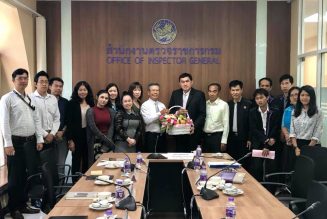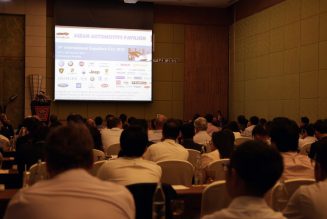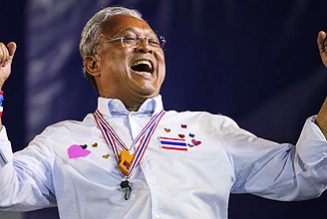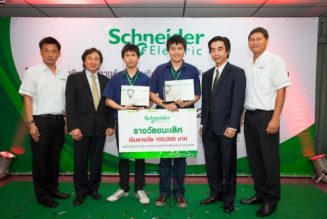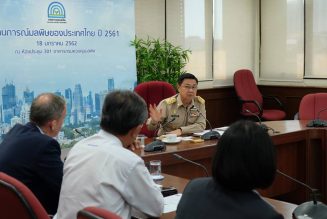The Education Ministry – faced for years with steadily dropping scores by top international assessors -plans a project of educational improvement among Thai students in an attempt to upgrade their quality standards.
The Programme for International Student Assessment (PISA) is more than just a test. Scores in PISA can affect the Kingdom’s economic confidence and foreign investors’ decisions whether to bring their money here. Now, Thai educators and teachers say, it’s time to pay more attention to the assessment and adjust the way they teach for the country’s benefit and future.
The ministry and Institute for the Promotion of Teaching Science and Technology (IPST) will change the way teachers go about their work. Teachers must encourage their students to analyse information, the same way they use analytical thinking when taking the PISA test, according to Office of Basic Education Commission (Obec) deputy secretarygeneral Benjalug Namfa.
She added that questions of PISA tests may be put in students’ exercise books so they can learn to analyse these questions. Similarly teachers would pose problems to train students on thinking critically and using problemsolving skills.
Thongchai Chewpreecha, adviser to IPST, said 2,000 people would be trained to instruct teachers in different parts of the country on adjusting their teaching styles over the next two years.
“Teachers have to understand PISA tests,” Benjalug said, adding that the ministry targeted for Thailand to obtain average PISA scores as high as international average or higher by 2018.
IPST and Obec would meet related educators and administrators across the nation in April and May to make them aware of the impact of PISA and encourage them to make changes. Officials from both agencies would meet with around 12,000 people. The meetings would be held in Chiang Mai, Bangkok, Phitsanulok, Ubon Ratchathani, Khon Kaen, Udon Thani, Nakhon Ratchasima, Rayong, Surat Thani and Somgkhla, Pornpun Waitayangkoon, the IPST director said.
Thai students’ average PISA scores were low – lower than international average PISA scores and are likely to drop gradually in the next PISA tests, according Benjalug.
“Low PISA scores reflect the Thai workforce’s low capability. This can affect potential assessment and investment in the nation. The scores have been disseminated worldwide and used to rank competitiveness of each country and counted among criteria for investment consideration,” she told around 800 school directors, educational service area office directors and educational supervisors at a meeting in Bangkok last week.
Institute for Research and Quality Development Foundation chairman Chainarong Indharameesup told The Nation that PISA classified proficiency levels into six categories, with Level 6 the highest and representing the most difficult questions. More than 50 per cent of Thai students were at Level 1 or below in the PISA 2009 mathematics performance.
“Level 1 means they can only read and remember information, but cannot analyse it. Level 3 means they can create imaginatively, plan and innovate; and in Level 46 they can create plans and search for information to argue with reason and analyse information,” he said.
“Students who reach Levels 36 are able to learn necessary skills for the 21st century – software, computer, entertainment, electronics and IT. If we are unable to provide education to equip our students with these skills, Thais will be underdogs to countries that are able to prepare their workforce with these skills.”
He added that only students from university demonstration schools and some leading schools could reach Level 3 or higher because the schools had implemented projectbased teaching in which students found and analysed information before planning to solve problems in their projects.
“Teachers under Obec had been taught by institutes that practised teaching methods for the 20th century – they have taught theory. Students remember information and answers,” Chainarong said.
PISA is a triennial worldwide test of the scholastic performance of 15yearold school children, coordinated by the Organisation for Economic Cooperation and Development (OECD). Developed in 1997, the first PISA assessment was carried out in 2000. The tests are administered every three years. Countries other than OECD members have also joined the assessment. Thailand joined it in 2000.
In South East Asia, Indonesia and Singapore have also participated in PISA – Singapore gets higher scores than Thailand but Indonesia’s are lower. The next PISA test is scheduled for this year, and two more countries in the region, Vietnam and Malaysia will join.
According to Chainarong, with good or satisfactory PISA scores, Hong Kong and Singapore are seen as being attractive among investors.
Chainarong said he was pleased to explain the importance of PISA to teachers to encourage them to adjust their teaching and help the country produce a workforce with working skills that would help the nation survive in the 21st century.

